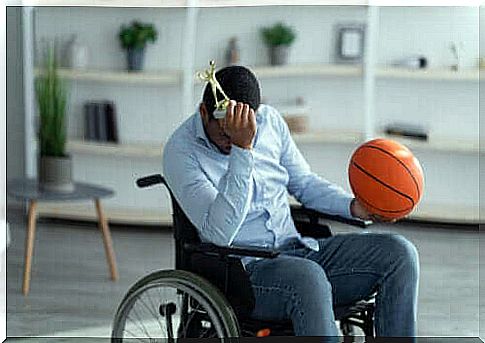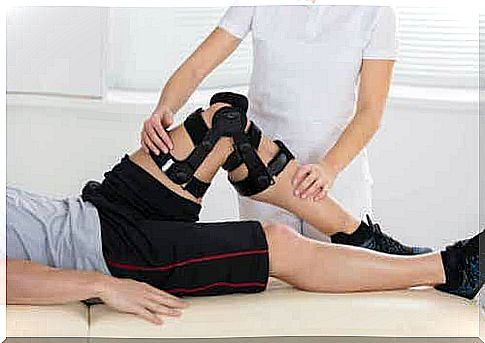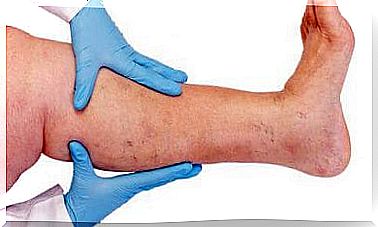Coping With The Psychological Effects Of Injuries

The psychological effects of injuries must also be addressed in any physical rehabilitation program. This means that a person must learn to deal with anxiety, fear and insecurity in addition to doing physiotherapy programs aimed at strengthening muscles, maintaining endurance and other goals.
Health is a whole. Even though you may be physically fit and prepared for the course of your life, your head may deceive you and it all ends there. As you can see, sports psychology is important in any approach to rehabilitation.
The psychological effects injuries have on mental health
It is important to understand that an injury will affect a person both physically and mentally. Therefore, some emotions are typical of the case and should not be alarming. For example, it is normal to experience anxiety, anguish, and even fear. These conditions can even motivate and be active in convalescence in many cases.
But you need to be aware of the emotional states that interfere with your daily life. Insomnia, permanent lethargy, depression, anxiety, grinding, negative and dramatic thoughts about the event, among others, for example.
Whether it occurs in amateur or competitive sports, an injury not only means a break in sports activity, but also causes changes in personal, relational and work areas. The sadness or anger over the injury will manifest itself in some way in the behavior of the person who experienced it.

Mentality and recovery
First, acceptance of the injury is the key to dealing with the emotions and achieving a transition to a more positive state, oriented toward rehabilitation. All in order not to stagnate with thoughts of defeat.
Emotional management is the key to recovery. Thus, it is necessary to deal with anger, fear, sadness and any other conditions the athlete may undergo.
Psychoeducation is also the key to recovery and coping with the psychological effects of an injury. For example, providing information to the injured person about the impact mental health has on their progress. This is so that they understand the importance of addressing it instead of neglecting it.
Many psychologists offer knowledge about sports indirectly. For example, they may recommend videos or documentaries about a given activity to engage the patient. Mainly to help them stay in touch with their area of interest. Furthermore, it is also helpful to get them to talk to people who once overcame a bad injury.
Optimism and visualization of positive scenes are also crucial. Therefore, it is important to encourage the thoughts in which you envision yourself in desirable situations. All in order to be able to recognize daily progress without feeling overwhelmed by what is missing.
Tips for overcoming the psychological effects of injuries
You need to know the patient you are working with to approach rehabilitation. Do this in addition to identifying the damage itself, its trigger or even the background. Did the athlete go through a burnout? Did they feel pressured or pushed to the limit?
The personality and life conditions around the practitioner will have a great influence on the actions you take. For example, the support resources available to them; their stress management strategies, and the importance of sports in their lives, among others.
This is exactly how sports psychology can adapt the intervention and offer what the injured person needs to deal with the psychological effects of injuries. Continue reading for some general recommendations.
1. Work with acceptance
It is important to focus on accepting the damage, and it is important to take a break and focus on recovery. Denial works as a defense, but not acknowledging what is happening can affect not only rehabilitation but also motivation. In fact, it can easily lead to risky behaviors.
Feelings of anger and sadness will also arise as these are part of the grieving process. The injured person must go through all these steps until they reach the acceptance phase. Then they will negotiate the different strategies they want to use.
2. Encourage patience
This can only be one of the most difficult aspects of rehabilitation. Especially when there is no clear timeline on the horizon. This happens when it mainly depends on the development of the injury.
Patience goes hand in hand with frustration. Thus , it will be important to continuously reinforce the idea that something is being done. Sometimes it is motivating to present rehabilitation as a challenge.
In addition, the patient must set short-term goals to see development and not see full rehabilitation as distant or impossible.
3. To address negative thoughts about the injury
Was it due to poor athletic ability? Was it bad luck? Stress? Was it the opponent’s fault?
It is important to explore their thoughts on what happened. It is trying to identify an overview of influencing factors, to work with those who are dysfunctional.
In addition, it is also important to know what their coping strategies are. They are not the same for a person who looks forward to the future and knows that the injury is temporary, as it is for someone who realizes that it is the end of their career.
Cognitive psychology has a lot to contribute in this regard. It is about cognitive restructuring and thought suspension, among other techniques and exercises.
It is also always positive to address the reason for their choice of sport as part of the work on the mental consequences of an injury. It is about restoring the motivation to continue, even if there is discouragement.

4. The psychological effects of injuries require relaxation exercises
Relaxation is key, both to alleviate the anxiety of rehabilitation and fear when a person returns to physical activity. It is necessary to incorporate it as a resource to relieve stress and also as a remedy to prevent relapse.
Returning to physical activity from a biopsychosocial perspective
The key to returning to physical activity is progression. You need to set small goals and gradually move on. It is also important to balance it with proper rest.
Do not put pressure on yourself, respect the recovery times and find out what is the best chance to resume training. Working with registration of the body and pain is a resource to keep in mind to take breaks when necessary. Being able to ask for help is of course the key.
Requirements have two sides in the sports environment. On the one hand , they stimulate growth and continuous improvement. On the other hand, they are also harmful and can have physical and mental consequences. Today, the value given to sports can either generate pleasure and enjoyment or pressure and stress in a short time.
It does not matter what level of professionalism a person practices a given sport when it comes to meeting the psychological effects of injuries. Thus, everyone must be assessed from a holistic perspective, a biopsychosocial that transcends the medical. At this point, sports psychology can provide resources for better practice and experience.









